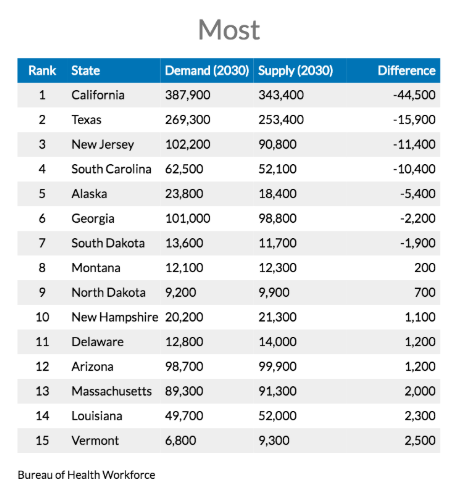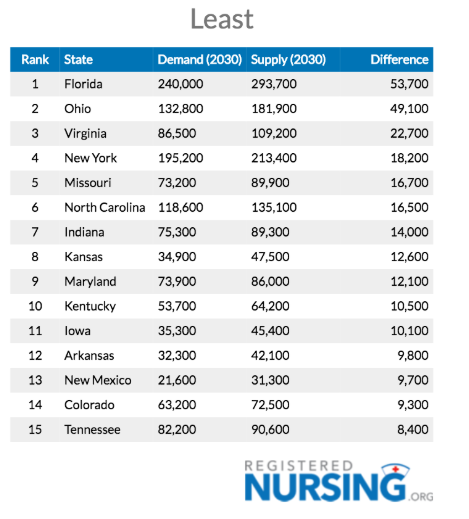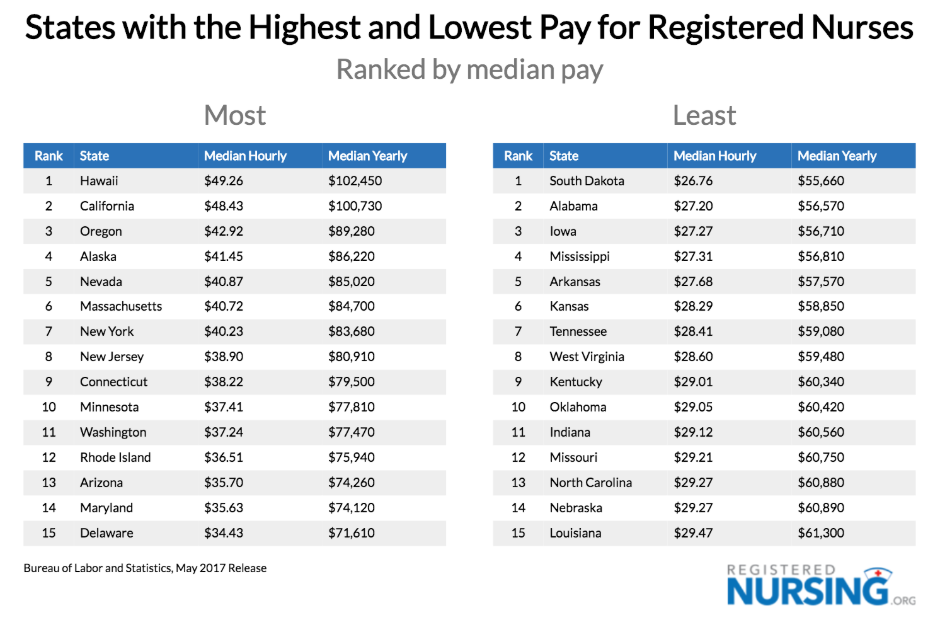Where the nursing shortage will be the worst
California is projected to have the worst nursing shortage in the country by 2030, according to new predictions from RegisteredNursing.org. The West coast state will experience the looming nursing shortage expected in many states, as the demand for nurses grows with the aging population.
From 2016 to 2026, the overall need for registered nurses is expected to grow 15 percent––more than double the 7 percent growth across all occupations. The need for licensed practical nurses will grow 12 percent and nursing assistants 11 percent over the same time period.
California will end up with the most need––by far––according to the projections, with a deficit of 44,500 registered nurses. That deficit is nearly three times the need for the next shortest state, Texas, which will have a deficit of 15,900 RNs by 2030. New Jersey, South Carolina, Alaska, Georgia and South Dakota will also experience deficits in the future.

On the other side of the country, Florida will see a high supply of RNs compared to its projected demand with an overage of 53,700 RNs. Ohio will also have a high overage of 49,100 RNs, following by Virginia and New York with high overages.

As huge states with large numbers of older adults, California, Texas and Florida will have the highest demand for RNs in the future. Compared to the size of the workforce, Alaska will see a deficit of 22.7 percent for RN employment, according to the projections.
Growth across the country is extremely varied. By workforce, South Carolina is expected to experience the most growth by 2030, jumping 69.4 percent, with 26,600 new jobs to the existing workforce of 36,900 RNs.
Additionally, wages vary widely by state, with the highest median hourly and yearly wages reported in Hawaii and California in 2017. Cost of living and demand both play into wages.


